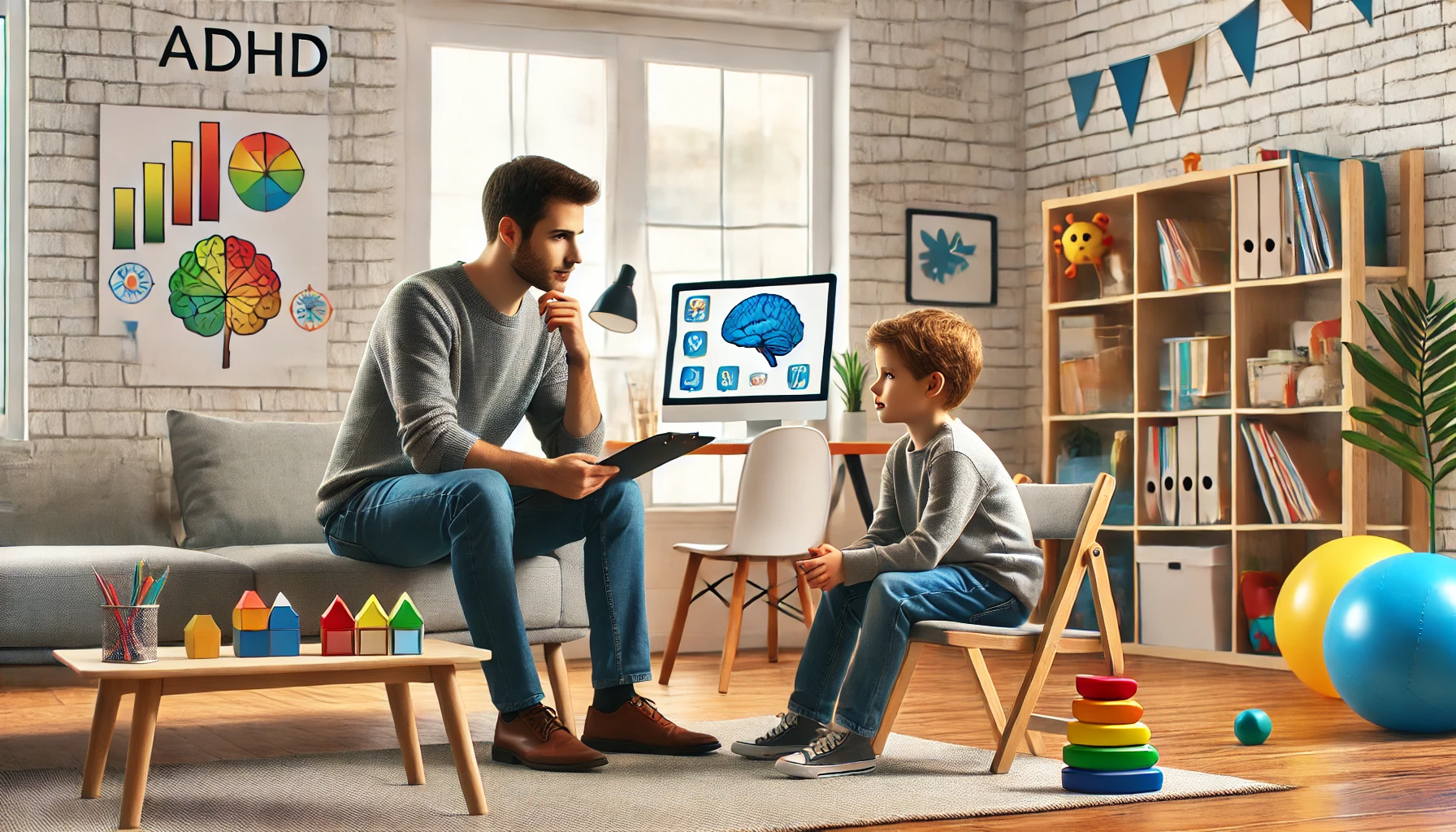Do you or your child struggle with paying attention, sitting still, or controlling impulses? These could be signs of Attention Deficit Hyperactivity Disorder (ADHD). Understanding ADHD is crucial for finding effective ways to manage it and improve the quality of life. This guide will provide valuable information about ADHD symptoms, treatment options, and how to support someone with ADHD.
What is ADHD?
ADHD is a disorder that affects both children and adults, making it hard to stay focused and control behavior. It can show up in different ways: inattention, hyperactivity, and impulsivity.
ADHD Symptoms
ADHD symptoms fall into two main categories: inattention and hyperactivity-impulsivity. Some people have symptoms from both categories.
- Inattention: Difficulty staying focused, making careless mistakes, not listening, and being easily distracted.
- Hyperactivity: Fidgeting, not staying seated, talking too much, and having trouble playing quietly.
- Impulsivity: Interrupting others, not being able to wait for turns, and acting without thinking.

Common ADHD symptoms in adults: difficulty focusing and managing distractions
Predominantly Inattentive Presentation
This type of ADHD is mainly about having trouble paying attention. People with this type might seem daydreamy or easily distracted.
Managing ADHD involves different strategies tailored to the individual’s needs. Here are some effective ways to manage ADHD:
Medications
Medications like methylphenidate (e.g., Ritalin) and lisdexamfetamine (e.g., Vyvanse) help improve focus and control hyperactive and impulsive behaviors.
Behavioral Therapies
Behavioral therapies teach skills to improve attention, organization, and self-control.
- Cognitive Behavioral Therapy (CBT): Helps change negative thoughts and behaviors.
- Parent Training Programs: Teach parents how to manage their child’s behavior.
Lifestyle Changes
Creating routines, using visual aids, and setting clear expectations can help manage ADHD symptoms. Regular physical activity and a healthy diet are also important.
Common Queries About ADHD
What is ADHD?
ADHD stands for Attention Deficit Hyperactivity Disorder. It affects attention, hyperactivity, and impulse control.
ADHD Symptoms
Recognizing ADHD symptoms early can lead to better management strategies. Symptoms include inattention, hyperactivity, and impulsivity.
ADHD Medication
Medications like methylphenidate (Ritalin) and lisdexamfetamine (Vyvanse) are effective in managing ADHD symptoms by improving focus and reducing impulsive behaviors.
ADHD vs. Autism
ADHD and autism are different conditions but can have overlapping symptoms. ADHD involves attention and hyperactivity issues, while autism includes challenges with social interaction and communication.
ICD-10 and ADHD
The International Classification of Diseases (ICD-10) lists ADHD under codes F90.0-F90.9, providing a standardized way for healthcare providers to diagnose and treat the condition.

Managing ADHD in children through cognitive-behavioral therapy.
Supporting Individuals with ADHD
Support is crucial for individuals with ADHD to thrive. Here are some ways to offer support:
- Educational Support: Schools can provide accommodations like extended test times and quieter environments for children with ADHD.
- Professional Help: Consulting with therapists and psychiatrists can provide tailored strategies and treatments.
- Parent Training: Programs that educate parents on managing ADHD symptoms at home can be highly beneficial.
Finding Support in Houston, Texas
For those in the Houston, Texas area, Luna and Sol Counseling PLLC offers specialized support for individuals with ADHD. Our services include personalized therapy plans, parent training, and resources to help families navigate these challenges.
Conclusion
ADHD is a complex condition that requires understanding and tailored support. By recognizing its symptoms, exploring treatment options, and offering support, caregivers and professionals can improve the quality of life for those affected. For more information and support, contact us for free today!
FAQs
What is the difference between ADHD and autism? ADHD involves issues with attention and hyperactivity, while autism includes challenges with social interaction and communication.
Can someone have both ADHD and autism? Yes, it’s possible for an individual to have both conditions, requiring a comprehensive treatment approach.
How can I support a child with ADHD? Create structured routines, use visual aids, and provide clear expectations to help manage their symptoms.
What therapies are available for ADHD? Behavioral therapies like CBT, parent training programs, and lifestyle changes are effective in managing ADHD symptoms.
Is ADHD considered a disability? Yes, ADHD can be considered a disability as it can significantly impact daily functioning and quality of life.
What is ADHD ICD-10? The ICD-10 classification for ADHD provides a standardized way to diagnose and treat the condition.
